Recently, a bizarre question took hold of social media: Could 100 men take on a gorilla in a fight? What…
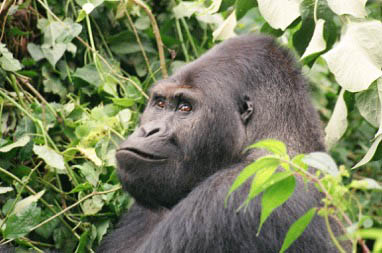
Locals have described the destruction as “worse than the volcano of 2021”. Countless people were killed as their homes were crushed by a terrifying wave of mud and giant rocks. At least 4,000 are still unaccounted for.
Tragically, among those who have lost their lives are Kalire Safari, one of the forestry managers at our Kalehe tree-planting project at Lake Kivu, and more than 200 local people who were benefiting from our work in the area. One of our nurserymen in Nyamukubi has lost his wife, his two children and his house. He’s been left with nothing. It feels like every passing day brings more terrible news about the disaster. But while we mourn the dead, we must act now to help the living.
Our experience and knowledge of the area is saving lives already. It’s absolutely vital that we help give men and women who have lost their homes in this tragedy the lifesaving food, fuel and shelter they need right now. In fact, it’s doubly important that we do this, because it will protect gorillas too. Desperate people, who have lost their homes, who have no food for their children or fuel for their stoves are all too likely to be driven into the forest and into contact with gorillas. They will bring with them the risk of deadly human diseases that are ripping through the population in the aftermath of the catastrophy.
Cholera has already taken hold in parts of Uganda affected by the mudslides. We have to make sure it doesn’t reach gorillas, who are so vulnerable to human diseases. That means we need to send out more ranger patrols as well as provide support for humanitarian disaster relief.
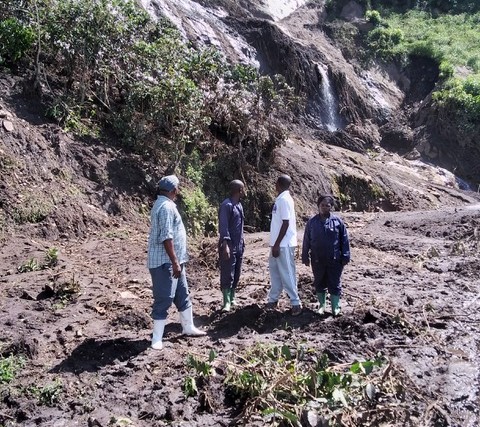
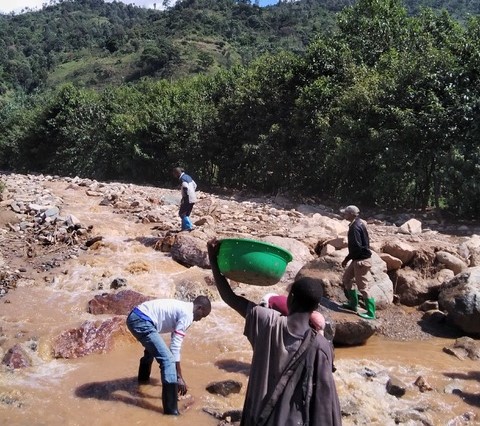
You’ll help restart our vital treeplanting programme in the area. The steep hillsides around Kivu were once covered by dense forests – and home to many gorillas. But recently huge swathes of forest have been clearcut for charcoal. We’d been busy recently planting hundreds of thousands of trees in the area, to create ‘buffer zones’ around the edges of the forest where local people could gather firewood, and to hold the hillsides together. In one nursery alone, 100,000 saplings were carried off by the mudslides and the flooding.
This is an emergency. We need to get started again right now. The sooner we can get more saplings into the ground, the better a chance they’ll have of reaching maturity before the next devastating rains and floods hit the area. And the more saplings we can plant, the sooner we can create that vital ‘buffer zone’ to protect the gorillas’ forest homes.
There’s no time to waste. While we continue to help the urgent humanitarian efforts, we must protect gorillas too. That means we must plant more trees. But to do that, we need tools. We need seedlings. And we need funds. And we need them right now. We already have local workers who are ready to plant the new trees. In fact, they desperately need the work in order to earn money to rebuild their devastated homes. But we urgently need your support to give them the tools and the plants they need. So please make a donation today. We know that we can succeed. We know that we can protect gorillas – and the environment they depend on – by planting more trees.
This genuinely is an emergency, for gorillas and humans alike. I hope that you will be able to help us to overcome it.

Recently, a bizarre question took hold of social media: Could 100 men take on a gorilla in a fight? What…

On 27 April 2025, Sonam Modhwadia took on the legendary TCS London Marathon, running every mile with purpose, in support…
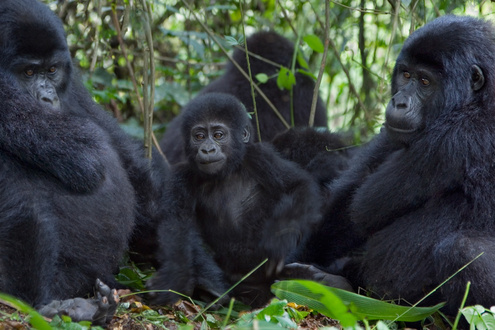
A surge in Mpox cases across the Democratic Republic of the Congo has triggered an urgent conservation response to protect…
The gorilla habitats that rangers patrol in the Democratic Republic of the Congo, Rwanda and Uganda are some of the toughest places in the world to operate. They are mountainous, wet and they’re often very cold. That means rangers need as much nutrition as they can possibly take on board. They’re like long-distance runners: the more fuel they have, the longer they can keep on going. Every extra step they take gives more protection to gorillas.
It’s not that rangers don’t have enough food rations for their current missions. It’s just that we all know there is so much more we could do – if only we had more. We know there are more gorillas out there. And they urgently need our protection.
just that we all know there is so much more we could do – if only we had more. We know there are more gorillas out there. And they urgently need our protection.
It’s simple. The more food rations we can provide for rangers, the more additional patrols we can carry out. The more patrols we carry out, the more gorillas we can protect. The more gorillas we protect, the more babies will be born, survive and thrive. That’s how we’ll save these wonderful creatures from extinction.

Simple stuff like dried fish, cassava porridge and beans are really high in calories and give rangers the stamina they need. They’re light to carry so rangers aren’t loaded down with unnecessary baggage. It’s cheap too. But it isn’t free. We have to 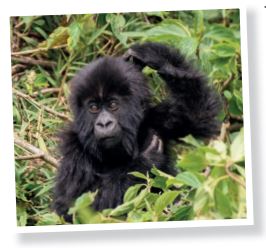 buy most of it at the markets in the bigger towns outside the forest and then transport it to camp. And the costs really add up quickly. Every ranger we send out needs two hot meals a day. And that means it takes a lot of money to keep them going. Money we depend on generous supporters like you to provide.
buy most of it at the markets in the bigger towns outside the forest and then transport it to camp. And the costs really add up quickly. Every ranger we send out needs two hot meals a day. And that means it takes a lot of money to keep them going. Money we depend on generous supporters like you to provide.
Each group carries their food with them into the forest, and cooks on camp fires in the morning and at night. Your donation could also help provide pots, pans and spoons. Rangers have to take everything with them on patrol – from spoons and bowls to eat with to pans to cook their food.
Every day, rangers make unimaginable sacrifices to save gorillas from extinction. And they’re desperate to do more. But they can only do that if they have the food rations they need. The more rations they have, the further they can go to protect gorillas.
Without baby gorillas, there can be no hope for the future. If rangers can carry out more patrols, they can make sure more mother gorillas give birth successfully.
Will you help make sure they have the rations they need to do more?
Download the full Rations for Gorilla Rangers Appeal and please share!

Recently, a bizarre question took hold of social media: Could 100 men take on a gorilla in a fight? What…

On 27 April 2025, Sonam Modhwadia took on the legendary TCS London Marathon, running every mile with purpose, in support…

A surge in Mpox cases across the Democratic Republic of the Congo has triggered an urgent conservation response to protect…